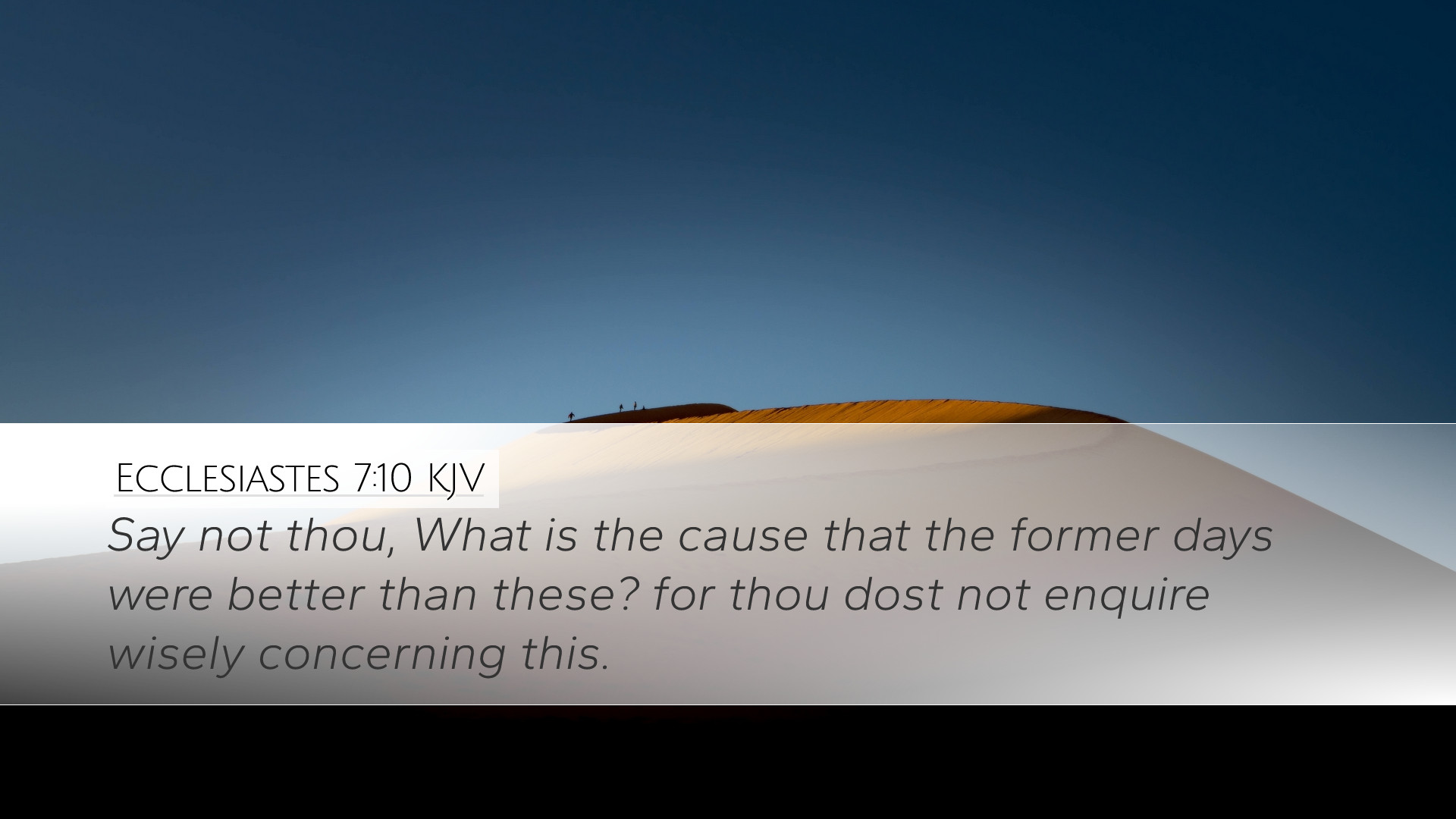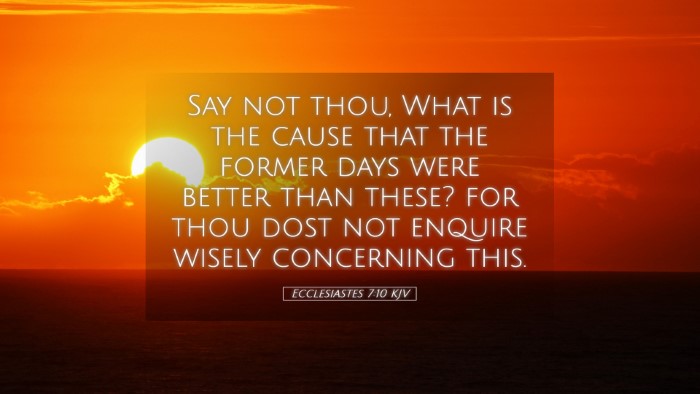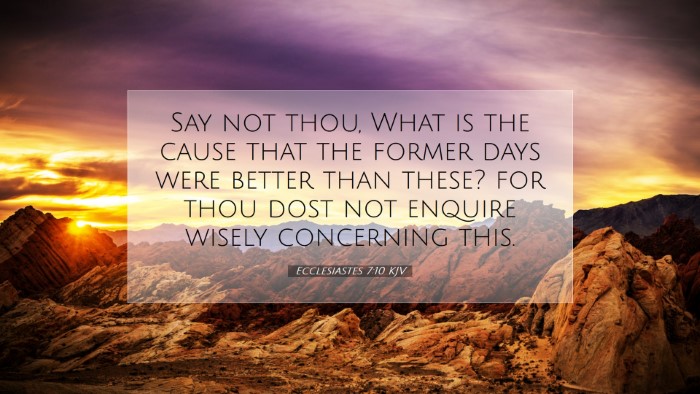Commentary on Ecclesiastes 7:10
Verse: "Say not thou, What is the cause that the former days were better than these? for thou dost not inquire wisely concerning this." (Ecclesiastes 7:10 KJV)
Introduction
This verse from Ecclesiastes presents a profound insight into human nature and the tendency to idealize the past. In this commentary, we explore the thoughts of esteemed biblical scholars such as Matthew Henry, Albert Barnes, and Adam Clarke, drawing together their interpretations and applications of this verse.
Understanding the Context
Ecclesiastes is a book attributed to Solomon, reflecting on the meaning of life and the human experience. The writer contemplates various aspects of existence, arriving at the conclusion that many pursuits are ultimately "vanity." This particular verse invites the reader to reflect on the wisdom of not longing for “the good old days.”
Verse Analysis
1. The Question of Reflection
Matthew Henry emphasizes the importance of self-reflection and caution when considering past times. He notes that expressing the desire for the former days can stem from neglecting the blessings and learning opportunities present in the current situation.
2. The Folly of Comparison
Albert Barnes highlights that the act of comparing one’s current circumstances unfavorably with the past often leads to a lack of appreciation for the present. This longing for the past can blind individuals to the blessings and advancements they experience today.
3. The Wisdom of Contentment
Adam Clarke points out that the lamentation for the past often signifies discontentment and ungratefulness. He suggests that such thoughts are not aligned with wise inquiry and can lead to spiritual and emotional stagnation.
Theological Reflections
This verse instructs believers on the importance of maintaining a healthy perspective on time and the events of our lives. The idealization of the past can manifest as:
- Discontent: When individuals romanticize former days, they may fail to appreciate God’s provision in the present.
- Nostalgia: Excessive nostalgia can hinder an individual’s growth and progress in faith.
- Spiritual Blindness: This mindset may lead to a failure to see God's hand at work in the current moment.
Life Application
For pastors, theologians, and students, Ecclesiastes 7:10 serves as a reminder to cultivate an attitude of gratitude. Here are some practical applications drawn from the commentaries:
- Foster Gratitude: Regularly recount and acknowledge the blessings of the present. This practice can aid in shifting focus from perceived deficiencies to the richness of today.
- Encourage Reflection: Engage in constructive conversations that help individuals reflect on God’s faithfulness throughout past and present circumstances.
- Promote Forward-thinking: Encourage an outlook that embraces change and the future while valuing the lessons learned from the past.
Conclusion
In summary, Ecclesiastes 7:10 invites a critical examination of our proclivity to yearn for the past. The insights drawn from Matthew Henry, Albert Barnes, and Adam Clarke remind us of the importance of living fully in the present, cultivating gratitude, and recognizing God’s ongoing work in our lives. As we reflect on this verse, let us strive to embrace the wisdom it imparts and engage meaningfully with our current realities.


